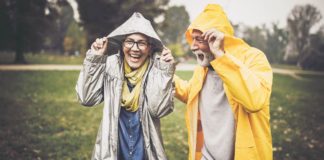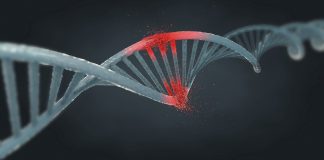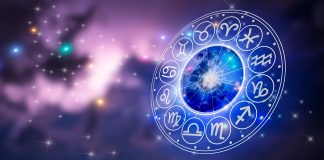Summa Theologica | Theology’s sway with logic
Classmates nicknamed him “the dumb ox” because of his massive physique and quiet nature. But his brilliant mind and passion for study impressed the famous professor Albert the Great, who defended him: “When this Ox roars, the whole world will hear it.” He was talking about Thomas Aquinas.
Henry’s domino effect
In his desire to secure an heir to the throne, Henry VIII set off a domino effect that would ultimately change the face of America and the world.
“The Case for Jesus: The Biblical and Historical Evidence for Christ” | Book review
"The Case for Jesus: The Biblical and Historical Evidence for Christ" challenges both the atheist and the agnostic, as well as the convinced or full-of-questions Christian, to look at the person of Jesus of Nazareth in a new light.
The Second Coming Files: A 2000-Year Inquiry | Part VI: Waiting for the return of Jesus in 19th century...
The expectation of the soon return of Jesus in 19th century Europe and America has left a path for believers and future believers to tread with confidence. Beyond the imperfect theological understanding of the forefathers, of which no one need be ashamed, God has shown that He can use any material, provided it is consecrated to Him.
Family and Christian values
"One of the acceptable idolatries among evangelical Christians is the idolatry of the family." This statement, posted by Pastor Kevin DeYoung on his X (formerly known as Twitter) account, has gone viral on the social media platform, garnering over 1,600 likes, but also fierce criticism and requests for clarification.
An obsession with perfection: how can you rewrite your mindset?
Do you focus on results, or rather on the challenge itself and the development process involved in completing a task? How you answer this question reveals a mindset that has significant implications for all areas of our lives.
Realistic expectations, the secret of lasting relationships
Aside from fuelling jokes about how women impose unrealistic standards on men, or how men are just grown-up children who want their wives to be their mothers, the expectations couples place on their relationship define how they relate to each other, and influence marital satisfaction.
Humans and chimpanzees
Is the chimpanzee the human’s closest relative in the animal world? According to the theory of evolution, the answer is a categorical YES. Specialised literature abounds in generous estimates of human-chimpanzee genetic similarity, ranging from 96% to 99%. But how are these percentages obtained, what assumptions do they hide, and what do they mean beyond the evolutionary interpretation?
My daily horoscope really fits! True or false?
The daily horoscope is sometimes seen as a quasi-scientific method of predicting the future, other times as a preoccupation of childish adults, a way of calming one’s curiosity about tomorrow.
The false analogy: when the apple insists on being a pear
The false analogy or the faulty analogy consists of the incorrect use of the analogy argumentative scheme without first meeting the requirements of a correct comparison.
The migration of trust in the digital age
Trust is the main currency of the age in which we live, and people seem to be changing the directions they invest in faster than in the past. How is our life of faith influenced by how we relate generally to trust?
The stylistics of Jesus’s speech
Today's increasingly politically correct and very denotative way of transmitting messages of public interest tends to distort the reception of speeches that have rhetorical and expressive nuances. In this context, how do we evaluate the cryptic nature of Jesus's words?
The end of the world, overlooked by philosophy
"Logic suffers from a great logical fallacy: it believes that reality itself is of a logical nature. If it encounters something that cannot be understood logically, it will claim that this something doesn't exist, but only appears to exist..." (Lucian Blaga, Horizons and Stages)
The Church of England | Anglicanism between Rome and Geneva
The term "Anglicanism" denotes the system of doctrine and practice of those Christians who are in communion with the archbishop of Canterbury. The beginnings of the Church of England are linked to the reign of Henry VIII and Edward VI, while the initial formulation of Anglican principles is linked to the reign of Elizabeth I, during whose reign a middle ground was politically...
Self-help and spiritual paralysis
Why personalising Christianity could threaten your salvation.


























